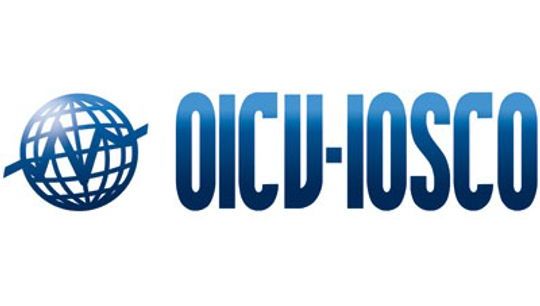Funds seek gains from private debt boom
By Aman Bahel, Apex group
Published: 30 November 2021
The future of private debt looks bright. The pandemic reinforced the case for private assets and the opportunity set in sub-sectors, such as distressed debt, has been bolstered by recent events. Notably, non-bank lenders have become more important in the post-COVID world.
To be clear, the pandemic had initially dampened activity. Private debt fundraising fell 10% in 2020 compared with the previous year. However, with 200 funds raising a total of US$118 billion, 2020 was still a very active year by anyone’s standards.
The fundraising process became more protracted. Infrastructure funds, for example, took an average of 21 months to close, 24% longer than the previous year, according to Preqin data.
However, short-term hitches don’t detract from the bigger picture – one of solid growth in the private debt market as a whole. Some sub-sectors have even been strengthened because of the pandemic.
Distressed funds gain
The special situations, credit opportunities and distressed debt universes are among those to have benefitted from these market conditions. The number of special situations funds raising money at the start of 2021 rose fivefold from a year earlier, to 79. Distressed debt fund managers accounted for 17% of the market, up five percentage points in 2019.
Similarly, the proportion of managers active in special situations rose by four percentage points, to 19%.
The pandemic also served to concentrate assets under management (AuM) among fewer players. Limited partners (LPs) turned to experienced managers, amid a ‘flight to quality’.
Across the top 10 private debt funds having reached close in 2020, the smallest was US$2 billion, and the largest was US$11 billion. Among individual deals in private debt, the biggest was Apollo’s US$4 billion financing for car rental company Hertz.
Prolonged low interest rates have boosted the case for private and infrastructure debt. Low default rates have also helped.
A report by Preqin in 2020 pointed to optimism among investors. Nearly half of those surveyed said they were likely to increase their allocation to private debt, with 93% intending to commit as much capital, or more, to infrastructure as an asset class in 2021 as in 2020, according to Preqin’s report, which forecasts that private debt AuM will rise to US$1.46 trillion by 2025, up from US$848 billion at the end of 2020.
Historically, major North American private equity firms, such as Blackstone, KKR, and Oaktree Capital Management, have dominated in private debt. But more mainstream fund groups from across the globe have turned to the asset class. Europe-focused AuM now makes up around 30% of the total, up from just over a quarter five years ago.
Direct lending appeal
Among the strategies, direct lending is set to continue drawing the most interest. Managers raised US$33.5 billion across 28 vehicles in the first half of 2021 globally, already three-quarters of the amount raised during the whole of 2020. Infrastructure debt will be playing a key part in funding what is commonly referred to as the ‘infrastructure gap’.
The G20 Global Infrastructure Hub estimates that global infrastructure investment needs will rise to US$94 trillion by 2040 to keep pace with economic growth and meet the UN’s Sustainable Development Goals (SDGs).
The annual shortfall, according to its main forecast, will rise from around US$460 billion in 2020 to around US$820 billion by 2040. Closing the gap would require annual infrastructure investment to increase from the current level of 3.17% of global GDP to 3.7%. Meeting SDGs will increase this need to closer to 4% by 2030.
Data is key
“For fund groups seeking to enter the private debt markets, data is key,” says Floris Hovingh, Managing Director at Alvarez and Marsal Debt Advisory, and one of the contributors of our market report on The Factors Shaping the Private Debt Market.
“It is a very data driven space, especially in fund raising. The more data you get to show how you have managed the portfolio, and particularly in difficult situations, the better. You need data to back up your statements. A cornerstone investor who can validate your investment strategy is also very helpful.”
Although not as mature as private equity, the private credit market is now commoditised, so a differentiated offering is also essential.
Service provider importance
Private debt consultant, Agnes Mazurek, who also contributed to our report, underscores the importance of innovation, and stresses the importance of having the right support.
“In my experience, having trusted advisers and service providers are essential. You cannot ignore how real the competitive advantage is of having the right partners or technology in place,” she says.
“Infrastructure debt, for example, is a very work intensive asset class, with long lead times from sourcing to execution of investments – several months is the norm. Why would you waste all that effort by messing up capital calls or cutting corners on the quality of investor reporting?”
Ultimately, to be competitive, market players will need to get the balance right between internalising operations and finding external resources to successfully tackle the complexity of the asset class.
There are multiple considerations including tax, compliance and structuring complexity and a host of investor demands from a geographically diverse base.
Fund managers can reduce operating costs and risk and by putting a trusted partner in place. This can also help streamline processes and leverage economies of scale. It is essential that any partner has global reach, but also has all the required local knowledge.
Technology is almost always a key consideration. The change in business practices over the past 18 months has only served to intensify the need for digital enablement across operational processes.
LPs need more transparency in reporting at borrower, asset, and fund level. They also require more sophisticated key performance indicators (KPIs), requiring sufficiently robust systems and automation. More importantly, this needs a partnership-style approach where managers can leverage the creativity of the service providers and focus on their core activities.
Finally, environmental, social and governance (ESG) issues are an increasingly important factor in private debt strategies, as with the wider market.
Fund managers are having to cope with more regulation and disclosure requirements. The EU’s Sustainable Finance Disclosure Regulation is reason for that. It has stepped up the need for the availability of accurate and meaningful data to monitor and track ESG practices.
To find out how Apex Group can help you set up or manage your private debt fund, please contact us via www.apexgroup.com









